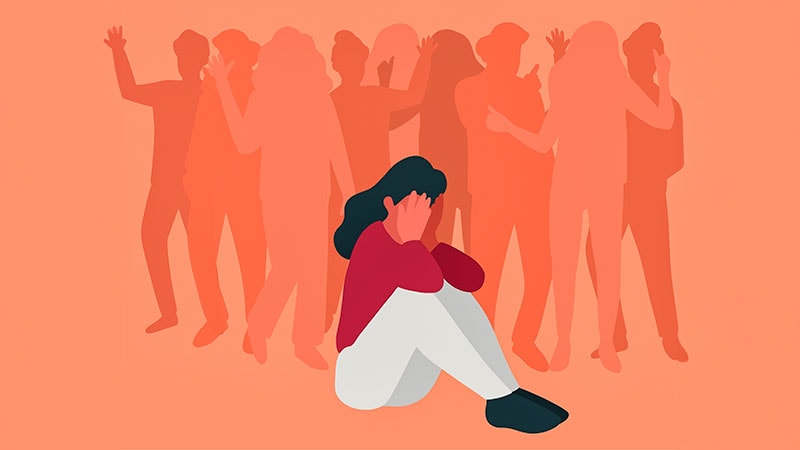The European Commission and UNICEF have embarked on a 3-year collaboration to improve mental and physical health among children and adolescents in the European Union (EU), Iceland, and Norway.
The partnership will design a policy tool kit revolving around the following five pillars: Promoting healthy lifestyles; early childhood development and intervention; immunization; protection from aggressive promotion of harmful products including tobacco, nicotine, alcohol, and unhealthy food; and promotion of good mental health.
Young people are increasingly experiencing mental health problems and decreasingly reporting high life satisfaction, Michal Molcho, PhD, professor of education and sociologist at the University of Galway, Galway, Ireland, told Medscape Medical News.
Other concerns include an increase in overweight and obesity as well as vaping, even though alcohol and tobacco consumption has decreased, she added.
“The European Commission and UNICEF will identify existing barriers to achieving positive health outcomes among children, map gaps in policies, interventions, and programs, and identify best practices implemented in countries,” a European Commission spokesperson told Medscape Medical News.
“Work will be built on existing successful practices and creating new tools where needed. Support will then be provided to member states in adapting and utilizing the tool kit effectively,” the spokesperson said.
The project is funded with €2 million from the EU4Health programme as a part of its goal to improve health to reduce the burden of noncommunicable diseases.
Designing Policy
Saoirse Nic Gabhainn, PhD, professor of health promotion at the University of Galway, told Medscape Medical News that strategies to improve health must follow essential principles: They should be evidence-based, implemented by skilled practitioners, and, where possible, evaluated to inform future practice.
“Early intervention is always preferable,” she said. “Short-term initiatives are less likely to be successful than multidimensional, sustained approaches that are embedded in health, social, and educational settings.”
Colette Kelly, PhD, also a professor of health promotion at the University of Galway, described a multidimensional approach to reduce overweight and obesity: An initiative to provide healthy school meals free of charge to all schools could run alongside efforts to address obesity stigma and improve access to resources to manage and treat the condition while creating safe and accessible environments for physical activity.
“Evidence demonstrates that whole-school approaches to health and sustainable development are closely linked, showing that the health of pupils and the sustainable environments in which they live are fundamental to their learning outcomes,” she said.
Governmental restrictions are also key, she added. Stricter regulations on marketing unhealthy foods and drinks to children and adolescents are also necessary, as well as improved access to affordable, nutritious food, especially for disadvantaged families.
Similar regulations could also reduce substance use, noted Gabhainn, who recommended limiting the availability of nicotine and tobacco products, increasing excise taxes, and banning advertising, promotion, and sponsorship opportunities for addictive substances.
Medscape Medical News also spoke with Frederike Jörg, PhD, associate professor of medical science at the University of Groningen in Groningen, the Netherlands. She noted that while there are no quick fixes for improving mental health, behavioral interventions that help children differentiate between normal and abnormal feelings could be helpful.
She added that addressing the social determinants of health, such as housing and employment issues, is a big part of the solution for improving health outcomes in young people.
Collaboration
The new 3-year partnership between the European Commission and UNICEF builds upon previous initiatives such as the Healthier Together — EU noncommunicable diseases initiative, Europe’s Beating Cancer Plan, and the Communication on a comprehensive approach to mental health, said the European Commission spokesperson.
“It will address obstacles and gaps to improve the lives of children and adolescents, especially those in a deprived situation, and support governments’ efforts in developing and implementing ambitious policies and initiatives.”
The tool kit will be developed alongside key stakeholders including national policymakers, educators, health professionals, and young representatives, as well as international partners such as the World Health Organization and the Organization for Economic Cooperation and Development to avoid duplication, said the spokesperson.
“This partnership with the European Commission is a vital step toward addressing some of the most pressing health challenges children face today, from mental health issues to preventable illnesses and harmful lifestyle behaviors. Together, we aim to ensure that every child has the chance to grow up healthy and realize their full potential,” Regina De Dominicis, UNICEF regional director for Europe and Central Asia, said in a press release.
Molcho, Gabhainn, Kelly, and Jörg reported having no relevant financial relationships.
Annie Lennon is a medical journalist. Her writing appears on Medscape Medical News, Medical News Today, and Psych Central, among other outlets.
Source link : https://www.medscape.com/viewarticle/eu-and-unicef-join-forces-improve-child-and-teen-health-2025a10001l5?src=rss
Author :
Publish date : 2025-01-23 06:11:55
Copyright for syndicated content belongs to the linked Source.
